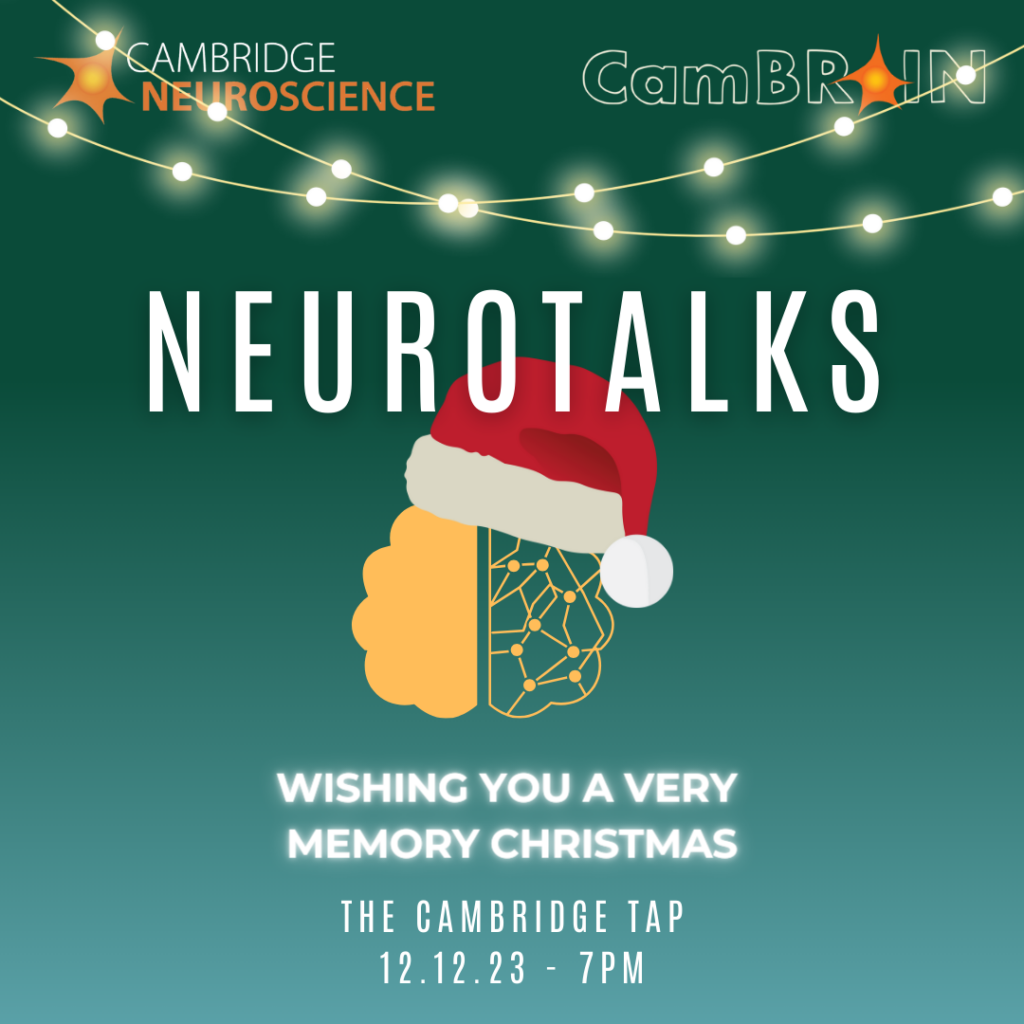
It’s nearly time for our annual FESTIVE NEUROTALKS! The usual Neurotalks set up with extra fun, your best and brightest Christmas jumper and some drinks and nibbles to get the party started after the talks. This year we are wishing you a very memory Christmas!
Forget to fear: the role of memory suppression in Pavlovian fear extinction
Memory Control Lab, MRC CBU
Overcoming fear is fundamental to our survival. Imagine if we still had a fear of the dark: would any of us be here doing PhDs if we weren’t able to do late-night frantic coding sessions? And how would we get through it all, without being able to navigate the labyrinthine gloomy depths of regretful Lolas on deep, dark, drunken nights? Clearly, learning not to fear, known as fear extinction, is absolutely crucial.
Traditionally viewed as a passive process devoid of fancy higher-order cognition, recent research challenges this. Complex functions like emotional regulation and episodic memory may play key roles in extinction. Through brain imaging, behavioural, and computational modelling work, this research tests a novel hypothesis: that during fear extinction, fear memories undergo active suppression and inhibition, diminishing their impact over time and ultimately allowing us to overcome fear.
The Science Behind Getting Real: Reality Monitoring and the Paracingulate Sulcus
Samantha Mitchell
Memory Laboratory, Psychology
How do we know that our memories are real? Reality monitoring is the ability to discriminate between information that is internally generated from information that is externally generated. This is an important cognitive ability that allows us to differentiate our imagination/dreams from information we have actually perceived from the outside world. Reality monitoring deficits have been linked to hallucination symptoms in patients with schizophrenia and recent research has highlighted that the length of the paracingulate sulcus, a fold in the brain, is related to both reality monitoring performance and hallucinations. In this talk, I will summarise the relationship between reality monitoring, the paracingulate sulcus and hallucinations and how our current work aims to determine whether this relationship can be observed early in life.
For those of you who haven’t been to Neurotalks before: each month we meet in the Cambridge Tap (private room with bar, upstairs) and enjoy talks from fellow early careers colleagues in neuroscience over a burger and a pint. These talks are meant for a general neuroscience audience (i.e. not the heavy nitty gritty academic stuff of lab meeting or conference talks) and they are interactive – i.e. you can shout out your weirdest questions at any time! We hope to see you there soon.
When: December 12th 2023, 7pm until late
Where: The Cambridge Tap

Posted on 29/11/2023